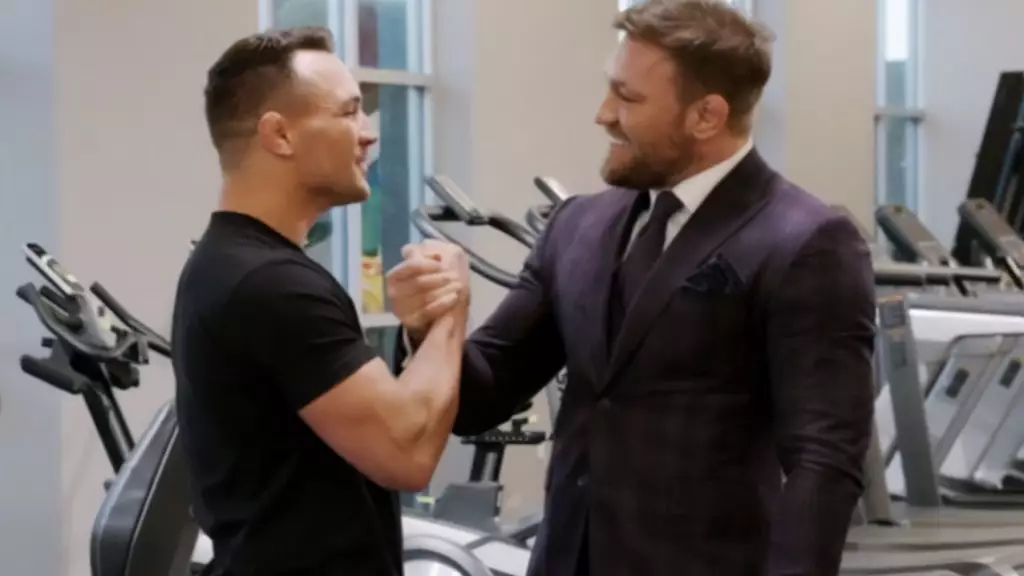In the mixed martial arts arena, the ever-evolving narratives surrounding fighter matchups often capture as much attention as the bouts themselves. Recently, Michael Chandler expressed his doubts about a potential fight between Conor McGregor and Dan Hooker, suggesting that the intricacies of the UFC landscape may render such a matchup unlikely. Originally slated to face McGregor at UFC 303 in June, Chandler found himself pivoting to rematch Charles Oliveira at UFC 309 after McGregor’s withdrawal due to an injury. This shift not only speaks to Chandler’s adaptability but also highlights the unpredictable nature of combat sports, where injuries and changes in plans are a regular occurrence.
While McGregor has announced his intention to return against Hooker in February, buoyed by their friendly exchange during a recent BKFC event, Chandler finds it hard to take these claims at face value. He aptly describes McGregor as “a flavor-of-the-week kind of guy,” hinting at the unpredictability and sporadic enthusiasm that has characterized McGregor’s career decisions in recent times. This description reflects a broader narrative in mixed martial arts—the idea that fighters, particularly those with McGregor’s star power, will often entertain various possibilities without committing to any single path.
A Closer Look at Chandler’s Perspective
From Chandler’s vantage point, the cordial rapport between McGregor and Hooker may not translate into an actual match. Acknowledging Hooker’s credentials as a formidable competitor—currently ranked in the top five—Chandler’s insights reveal an underlying tension in the sport: the balance between amicable relationships and competitive rivalry. Chandler’s track record, which includes a victory over Hooker during his debut, grants him a vested interest in asserting his relevance within the elite ranks of the UFC. He believes that if McGregor indeed returns to the octagon, it would be more profitable for the UFC to consider him as McGregor’s opponent rather than Hooker.
Chandler’s confidence in securing a showdown with McGregor underscores the importance of marketability in the UFC. Being the more established name, Chandler’s potential bout with McGregor stands to attract significant attention and financial reward, cementing his argument that he deserves another chance in the spotlight. The UFC, as a promotional entity, favors fights that promise to draw in audiences, and Chandler’s perspective aligns with their business interests.
Navigating the Uncertainty
Ultimately, Chandler seems determined to focus on his upcoming rematch with Oliveira rather than the ongoing speculation surrounding McGregor’s future. His pragmatic approach suggests that he recognizes the unpredictability inherent in MMA; rather than expending energy on what may simply be a fleeting headline, he has his sights set on tangible success in the cage. This attitude exemplifies the resilience required of fighters navigating their careers amidst the chaos of opponent changes and promotional whims.
As Chandler prepares for his upcoming fight, the future of McGregor remains shrouded in ambiguity. While the notion of a McGregor-Hooker bout builds excitement, it’s evident that the dynamics of UFC matchmaking, personal rivalries, and fighter ambition mean that nothing is set in stone. The landscape of mixed martial arts will continue to be a riveting tapestry woven from uncertainty and readiness, with fighters like Michael Chandler exemplifying the dedication needed to thrive amid these complexities.

